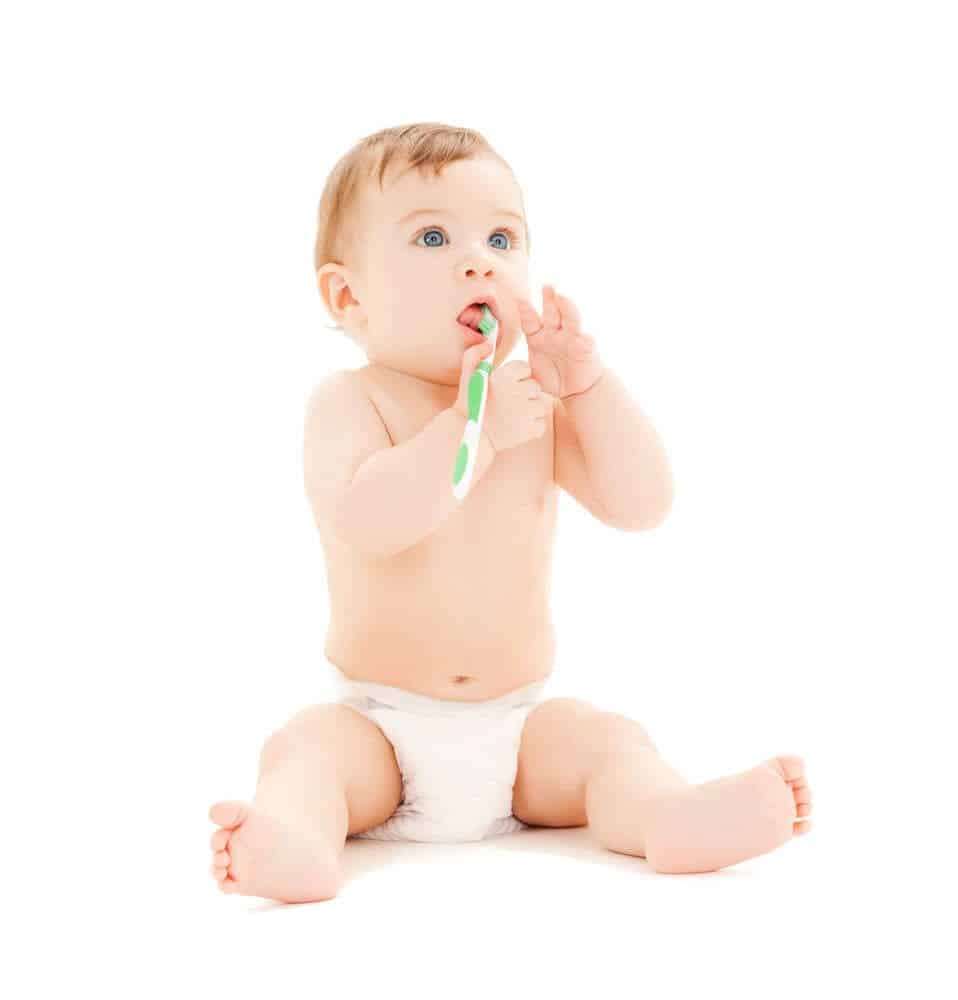Unless your baby was one of the rare ones born with natal teeth (often wiggly, underdeveloped teeth present at birth), you may think you have about 6 months with your little one before you need to even think about oral health. The American Academy of Pediatric Dentistry actually recommends cleaning newborn and infant gums with a soft brush or cloth and water. The most important thing you can do for your baby’s oral health is avoid breast or bottle-feeding him to sleep. When babies fall asleep during feeding, they end up with milk or formula residue in their mouth longer, putting them at increased risk for decay.
The first teeth that appear are baby teeth, and will fall out in 6-10 years to make room for the final adult set. That does not mean they do not need just as much care. Everything from eating to talking to learning is influenced by the health of baby teeth. When that first tooth erupts, it is time to start new oral hygiene habits. Brush the tooth or teeth with a small, soft-bristled brush and a tiny smear of fluoride toothpaste in the morning and before bed at night. The good news is that a gentle brushing often provides a soothing gum massage for teething babies, so it should be an enjoyable experience.
In addition to brushing daily, once the first tooth erupts, it is time to schedule baby’s first dentist visit. For a healthy infant or child, it is okay to go to a pediatric dentist or a family dentist that sees all ages. Many general dentist offices are not set up to see patients that are younger than 3-5 years old, but it is recommended that as soon as the teeth are present, you start having cleanings and check-ups every 6 months. For the youngest patients, the visit is more for screening and education than scraping plaque, but it is no less important. The 3 year old who has been visiting the dentist every 6 months is also more likely to be calm and compliant at a full cleaning than one that has never sat in the chair before.
Early childhood cavities are preventable, especially when you start with good oral hygiene from birth. Power struggles over brushing are unfortunately not preventable, but this is one battle it is worth fighting to win. Hopefully starting the habit early and being consistent will limit some of the pushback, and as always, ask your pediatrician or dentist if you have any specific questions or concerns about your baby’s mouth.
Author Bio

